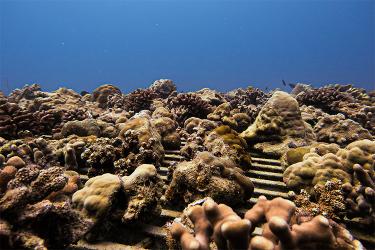We are implementing regulations for Framework Adjustment 2 to the Mid-Atlantic Fishery Management Council’s Tilefish Fishery Management Plan. This action makes modest changes to improve and simplify the administration of the golden tilefish fishery. These changes will affect anyone who fishes for golden tilefish in the Mid-Atlantic, including the recreational fishery, the incidental commercial fishery, or the individual fishing quota (IFQ) fishery. The specific measures changing are:
Recreational Fishing Gear
In order to retain any golden tilefish, anglers may only fish with rod and reel fishing gear with a maximum of five hooks per rod. They may use a manual or electric reel.
Incidental Commercial Trip Limit
Any vessel fishing under a commercial tilefish vessel permit is prohibited from landing more than 500 pounds of golden tilefish, or 50 percent, by weight, of the total of all species landed, whichever is less. This limit does not apply to vessels fishing under a tilefish IFQ allocation permit.
Commercial Tilefish Must Be Head-On
All commercial tilefish must be landed with the head and fins naturally attached but may be gutted.
Interactive Voice Response (IVR) System
Tilefish IFQ vessels are no longer required to report each tilefish landing through our IVR phone system. These IVR reports are no longer necessary to monitor the fishery. The normal vessel trip report (VTR) and dealer report are still required for each trip.
IFQ-Authorized Vessels
Each IFQ permit holder may designate one (or more) vessel they own or contract to harvest their IFQ allocation. When a vessel is listed on an IFQ permit, all its tilefish landings are attributed to that allocation. Therefore, a vessel cannot be listed on more than one IFQ permit at the same time. IFQ permit holders may add or remove a vessel from their IFQ permit throughout the year by notifying us in writing.
Discard Specification
We have changed how discards are accounted for during the specification-setting process. The IFQ fishery and the incidental fishery will each use sector-specific estimated discards to calculate the total allowable landings (TAL) for that sector of the fishery. The 2018 specifications have been adjusted to reflect this. As a result, the incidental quota is reduced from 37 mt to 33 mt, and the IFQ TAL is increased from 701 mt to 705 mt. The 4-mt increase is allocated based on each IFQ permit holder’s quota share. We will issue revised 2018 IFQ permits reflecting the change.
|
Frequently Asked Questions |
|
|
Why are you changing the recreational gear? |
The Council was concerned about the growing use of mini-longlines and other gears that can quickly catch more tilefish than the recreational bag limit. This could result in more dead discards, which could negatively impact the health of the stock. |
|
If I land 400 lb of squid, is my golden tilefish incidental landing limit 400 lb (50% of all fish) or 200 lb (50% of non-tilefish)? |
400 lb. At time of landing, golden tilefish cannot exceed 50 percent of the weight of all fish being landed (including the tilefish), up to a maximum amount of 500 lb. A vessel authorized to land tilefish IFQ is exempt from the possession limit. |
|
What is the impact of the new head-on requirement? |
This provision codifies the current industry norm. Almost all commercial tilefish landings are already whole or head-on gutted fish, so are not affected by this provision. Adding this to the regulations will make it easier for us to set quotas in landed weight, which is more convenient for the industry. |
|
Who can I speak with if I have questions? |
For questions about this final rule, please contact our Sustainable Fisheries Division at (978) 281-9315. |


